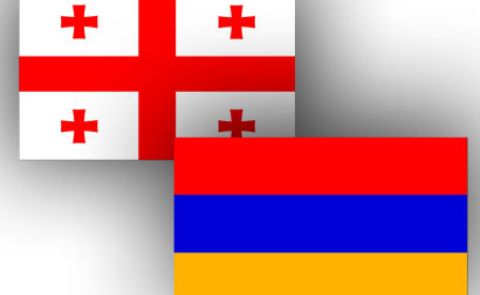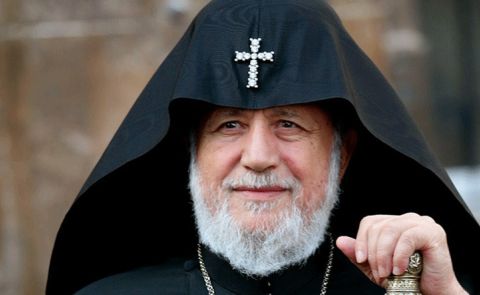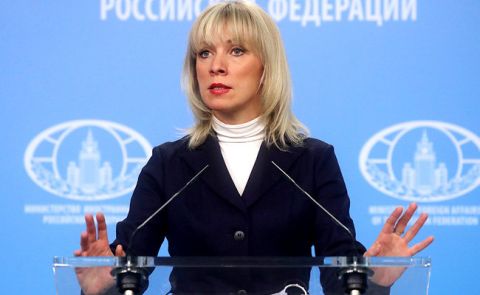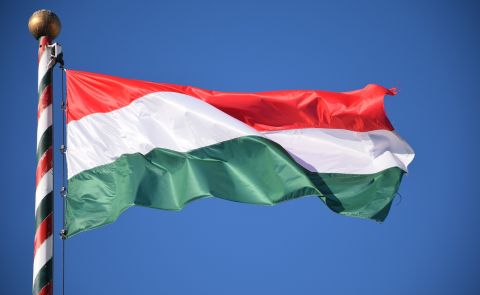
EUISS's Brief on Georgia-EU Relations

On August 3rd, the European Union Institute for Security Studies (EUISS) released an insightful and comprehensive brief authored by Teona Lavrelashvili, shedding light on Georgia's perspective on European integration. Lavrelashvili delves into the intricate interplay of internal and external factors that shape Georgia's fluctuating relationship with the European Union.
Over the past few years, Georgia's journey towards European integration has encountered obstacles, largely due to domestic political disagreements. Following the disputed parliamentary elections of 2020, the nation's political parties have struggled to reach a lasting agreement or compromise. Lavrelashvili attributes this challenge to Georgia's historical reliance on majoritarian and mixed electoral systems, coupled with a political culture centered around personalities rather than driven by ideological divides.
The absence of constructive dialogue on pressing political matters has led to widespread disillusionment among the populace, further deepening the divisions in national politics. Lavrelashvili highlights a significant issue often overlooked in the analysis of Georgian politics: a legitimacy crisis affecting both its leadership and major political parties.
“A key issue often overlooked when examining Georgian politics is the legitimacy crisis faced both by its leadership and by its main political parties. In addition to lacking public support – with 64 % of Georgians expressing the belief that none of the parties represent their interests.” In fact “Ordinary Georgians are preoccupied first and foremost with unrelenting social hardship as one in every two Georgians feels economically insecure”.
In the absence of productive government-opposition discourse, street demonstrations and boycotts have become the primary means of exerting political pressure. In this context, the involvement of international mediators and the stance taken by Georgia's international partners have become crucial, although often ineffective. An example of such international involvement was Charles Michel, the President of the European Council, initiating dialogue with political parties, an unprecedented move in the history of the Eastern Partnership. Regrettably, this mediation, known as the "Michel Document," failed, exacerbating tensions between Tbilisi and Brussels. Even before the Ukraine crisis, the concerns raised by Georgian officials about excessive EU involvement in their domestic affairs had casted doubts in Brussels on Tbilisi's commitment to European integration.
The war in Ukraine and strained diplomatic relations between Tbilisi and Kyiv further accelerated the deterioration of ties between Tbilisi and Brussels. The imprisonment of Mikheil Saakashvili, Georgia's former president who currently holds only Ukrainian citizenship, and Tbilisi's refusal to support sanctions against Russia disappointed Kyiv. When Georgia's Minister of Internal Affairs dismissed the sanctions as "useless," Ukraine recalled its ambassador.
Georgia's stance on the war in Ukraine holds significant implications for the EU integration process, not merely due to the divergent views between Tbilisi and Brussels, but also for practical reasons. Indeed, the path to Georgia's integration into the EU was closely intertwined with the innovative framework known as the EU's Associated Trio, designed to foster enhanced cooperation among Georgia, Ukraine, and Moldova. This tripartite arrangement was established in 2021 with the primary aim of fortifying collaboration with the EU.
Following the invasion of Ukraine, both Ukraine and Moldova promptly submitted their applications for candidate status within the EU. This pivotal moment appeared to present an historic opportunity for Georgia to align itself with the other members of this tripartite trio. Amid mounting pressure from civil society, the Georgian government, originally intending to postpone its application until 2024, rushed to apply. However, while Kyiv and Chisinau were granted candidate status, embarking on a journey that could potentially reshape the EU, Tbilisi had to settle for “European Perspective” and the assessment of Georgia's suitability for candidate status was deferred until the end of 2023 and made contingent upon the fulfillment of 12 specific conditions.
Lavrelashvili emphasizes that the uncoordinated EU membership applications within the 'EU Association Trio' contributed to the denial of Georgia’s candidate status.
“Notably, the fact that the EU membership applications of the participants of the newly formed ‘EU Association Trio’ were uncoordinated and submitted separately demonstrated the serious political shortcomings of this platform, despite its obvious strategic relevance” she writes. Moreover “Both Ukraine and Moldova have been trying to distance themselves from Georgia, which seems to be backtracking on its democratization path. Georgia’s apparent disinterest in developing bilateral and trilateral sub-formats of cooperation, coupled with the country’s tepid response to Russia’s actions in Ukraine, as well as the Georgian government’s alleged ill-treatment of the imprisoned Saakashvili, created additional cracks within the trilateral format”.
The failure to secure candidate status led to accusations from the Georgian government, claiming that the EU's assessment was based on Tbilisi's refusal to implement sanctions against Russia. Nonetheless, the brief suggests that the European Perspective alone is a significant achievement for Georgia. Lavrelashvili proposes several steps to pave the way for Georgia's EU integration beyond candidate status, including exploring models like the European Economic Area (EEA) and staged accession. Furthermore, the brief suggests that Georgia should also leverage the European Political Community (EPC) to enhance its visibility within the EU.
The brief recommends stronger EU efforts to prevent sanctions circumvention and support political mediation in Georgia, while also promoting exchange among Georgian politicians and MEPs.
In fact, Teona Lavrelashvili writes “One idea could be to enable local politicians (and their counterparts from other associated countries with an EU membership perspective) to actively participate in the work of the European Parliament, although without being granted voting rights”.
A further interesting proposal raised by the brief is that to improve cooperation and coordination between the Associated Trio and the six Balkan countries. This would be an opportunity for the Trio to benefit from Balkan countries’ expertise in dealing with EU integration, while at the same time fostering cooperation rather than competition.
Lavrelashvili maintains that “The EU’s recent decisions to grant candidate status to Ukraine and Moldova and promise membership to Georgia in a historically short timeframe have made the Western Balkan countries increasingly sensitive to the possibility of their accession process being overshadowed by the Ukraine question. Thus, promoting constructive engagement and partnership between these countries could pave the way for a more effective and inclusive European integration process, and benefit both sides”.
Notably, over the summer, Georgia's President Salome Zourabichvili embarked on a tour across the EU to advocate for Georgia's candidacy. However, this move faced backlash at home, with the Georgian Dream party initiating impeachment proceedings. While parliamentary approval is unlikely, this reaction underscores the potential for EU enlargement to expose deep rifts within Georgia's political landscape.
See Also


Energy Sector Milestones: Armenia Advances Key Power Infrastructure

Armenia Temporarily Halts Brandy Exports Amid Georgian Border Congestion

Political and Religious Conflict Intensifies Over Armenian Apostolic Church Leadership

Maria Zakharova Warns Azerbaijan to Respect Russia’s Sensitivities on NATO Expansion, Criticizes EU Mission in Armenia

